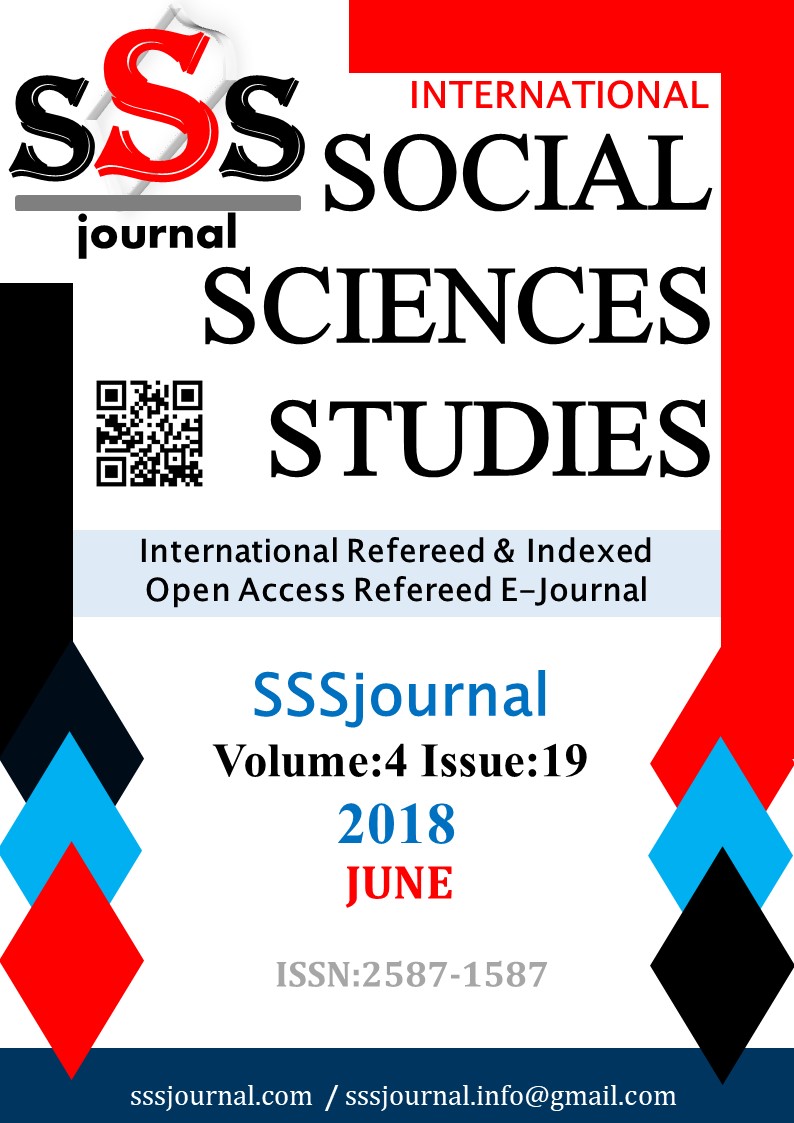Author :
Abstract
Araştırmada, farklı branşlardaki elit sporcuların yılmazlık düzeylerinin bazı değişkenler açısından incelenmesi amaçlanmıştır. Çalışma gönüllü katılım gösteren Futbol, Basketbol, Voleybol, Hentbol, Güreş, Boks, Atletizm, Judo branşlarından toplam 554 elit sporcu ile gerçekleştirilmiştir. Çalışmanın verilerini elde etmek için Gürgân (2006) tarafından geliştirilen 8 alt boyut ve 50 maddelik Yılmazlık Ölçeği kullanılmıştır. Bütün veriler SPSS programıyla analiz edilmiştir. Elit sporcuların yılmazlık düzeylerinin cinsiyete ve yaşa göre ortalamaları incelediğinde anlamlı bir farklılaşma olmadığı görülmüştür Bir diğer önemli bulgu olarak; yılmazlık düzeylerinin branş, eğitim durumları, aktif olarak spor yapma süreleri ve elit düzeyde spor yapma sürelerine bağlı olarak farklılaştığı saptanmıştır.
Keywords
Abstract
The aim of this study was to examine the resilicience level of elite sportsmen in different sports in terms of some variables. The study was conducted with a total of 554 elite sportsmen who voluntarily participated in the study from the sports of football, basketball, volleyball, handball, wrestling, boxing, athletics and judo. Resilience Scale was used as data collection instruments. Resilience Scale which was developed by Gürgân (2006) and consists of 8 factors and 50 items was used to determine the resilience levels of elite athletes. All the data were analyzed with SPSS software. It was seen that there was no meaningful difference when the resilience levels of elite athletes examined the averages according to sex and age. As another important finding; it was determined that the levels of resilience differed depending on the branches, educational status, active sporting periods and elite sporting periods.
Keywords
- Bandura A (1997). Self-efficacy. New York: Freeman.
- Bandura A (1997). Self-efficacy. New York: Freeman.
- Begun, A. L (1993). Human behavior and the social enviroment: The vulnerability, risk, and resilience model. Journal of Social Work Education, 29 (1), 26-35.
- Coulter T.J, Mallett C.J, Gucciardi D.F (2010). Understanding mental toughness in Australian soccer: perceptions of players, parents, and coaches. Journal of Sports Science. 28(7), 699-716.
- Eitzen D.S, Pratt S.R. (1989). Gender differences in coaching philosophy: the case of female basketball teams. Research Quarterly Exercise and Sport. 60(2), 152-8.
- Gucciardi D.F, Gordon S, Dimmock J.A, Mallett C.J (2009). Understanding the coach's role in thedevelopment of mental toughness: perspectives of elite Australian football coaches. Journal of Sports Science. 27(13):1483-96.
- Gürgân U (2006). Grupla Psikolojik Danışmanın Üniversite Öğrencilerinin Yılmazlık Düzeylerine Etkisi.Ankara Üniversitesi, Eğitim Bilimleri Enstitüsü, Eğitim Bilimleri anabilim dalı, Eğitimde Psikolojik Hizmetler, Rehberlik ve Psikolojik Danışmanlık Programı, Yayınlanmamış Doktora Tezi. Ankara.
- Kaner S, Bayraklı H (2009). Engelli ve engelli olmayan çocuklu annelerde yılmazlık, sosyal destek ve stresle başa çıkma becerileri. Eğitim Bilimleri ve Uygulama Dergisi, 8 (15), 115-133.
- Kırımlıoğlu H, Çokluk G.F, (2012). Türk Antrenörlerin Yılmazlık Düzeylerinin İncelenmesi, Elektronik Sosyal Bilimler Dergisi, Cilt:11 Sayı:39 (115-127).
- Maddi S. R (2005). On hardiness and other pathways to resilience. American Psychologist, 60 (3), 261-262. Masten, A.S (2001) Ordinary magic: resilience processes in development. Am. Psychol. 56: 227–238.
- Scheier M, Carver C (1992). Effects of Optimism on Psychological and Physical Well-Being: Theoretical Overview and Empirical Update Cognitive Therapy and Research, 16 (2) 201-228.
- Terzi Ş (2008). Üniversite Öğrencilerinin Yılmazlıkları Ve Algıladıkları Sosyal Destek Arasındaki İlişki. Türk Psikolojik Danışma ve Rehberlik Dergisi, 29, 1–9.
- Tugade M , Fredrickson B. L, Barrett L. F (2004). Psychological resilience and emotional granularity:Examining the benefits of positive emotions on emotion regulation and health. Journal of Personality, 72, 1161 – 1190.
- Walsh F (2006). Strengthening family resilience (2nd ed.). New York: Guilford Publications
